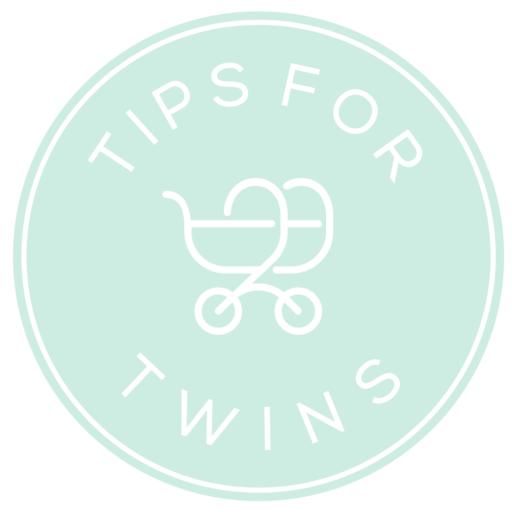Expecting twins means there’s more demands on our bodies. More demand doesn’t necessarily give us a hall pass to just consume more, though we certainly have extra nutritional needs. Listen to your body, it’s that simple. Eat when you’re hungry, stop when you’re full, and make the calories you’re consuming count with the right amounts of protein, carbohydrates, calcium, folic acid and iron. With that said, I’m not a dietician or nutritionist or health specialist so talk to your doctor about your specific nutritional needs which can be altered based on a variety of factors throughout pregnancy.
There’s a lot of conflicting research on the “what to eat, what not to eat” debate during pregnancy, and the research that does exist is ever-changing. It also varies by healthcare provider. And by geography. (Hello, Europeans, we see you consuming all your meats and cheeses and wine!) And much of it is personal opinion. So, after a lot of research, and one healthy twin pregnancy followed by another, I’m here to share with you my own learnings based on research which I deem to be responsible, healthy and also quite simply: realistic.
Let’s highlight the “realistic” component for a second. Many experts will tell you to fill up on lean meats, dark leafy greens, shrimp and hummus and you know what? That’s great unless you can’t stomach it! Have they been pregnant with twins? The first few months of twin pregnancy for me were straight survival. I lived on granola bars, peanut butter crackers, trail mix, cereal, hard boiled eggs, cheese sticks and pasta. Meat was too meaty. Vegetables were too earthy. Fish? No way. And this was disheartening for someone like me who LOVES all types of food. If this is you too, do not worry. Focus on what you can control, what you can consume that’s healthy and sits well, what you find works through trial and error, and your taste buds will make a glorious, triumphant return later in your second trimester where you can focus more on nutrition then.
So here are the basics. Twin pregnancy can get so complex so quickly, let’s keep this simple.
DO supplement your diet with a prenatal vitamin, folic acid and iron supplement if you’re anemic (as recommended by your healthcare provider). I also swear by a probiotic.
DO get plenty of protein (it builds cells), carbohydrates (they provide energy), calcium (strengthens bones), iron (blood builder to combat anemia), folic acid (prevents birth defects), and fiber (keeps your digestion regulated). Food suggestions for all of these are below.
DO stay hydrated. Even if you can’t stand the thought of eating certain foods (which, trust me, this was a common worry for me, especially in the first trimester, and the doctors all assured me that the babies will get proper nutrition from whatever you’re managing to keep down), stay hydrated. This is important for so many reasons, and the water requirements are greater in a twin pregnancy.
DO stash healthy snacks (granola bars, trail mix, fruit) so they’re readily available because when you get hungry, you’ll need to eat, like yesterday. And eat small, frequent meals throughout the day (and night) to help with both nausea and prevent heartburn.
DO be aware of foods or ingredients to avoid or limit. This is where things can get dicey quickly, and a lot of it depends on your own comfort level or research. Things on this list that require limitations or some discerning include – caffeine, processed foods, artificial sweeteners, sprouts, certain herbs and spices, sushi, deli meats, soft cheeses, hot dogs and alcohol.
Here’s my take: Does a latte sound good? Enjoy! The most common, conservative recommendation is 200 milligrams of caffeine a day, so about 2 cups of coffee or 2-3 shots of espresso.
Does sushi sound good? That’s awesome. The issue with fish while pregnant is mercury content. Indulge on salmon, scallops, tilapia, shrimp, and domestic crab and avoid fish with higher levels of mercury like shark, tuna, mackerel, swordfish, and big fish.
Do you really want a deli sandwich? Just make sure the deli meat is heated until it’s steaming to kill bacteria. This is to avoid listeria, a foodborne illness in which pregnant women are more susceptible, and serious complications can arise from it. Thankfully, it is rare, but this is why you’ll often read to avoid deli meats, hot dogs, soft cheese and raw juices. Make sure the cheese you eat or juice you drink is pasteurized and the food you eat is cooked until well done.
–Processed foods should be limited, but why not treat yourself to a donut or some potato chips? It certainly won’t hurt when in moderation.
–Artificial sweeteners – The jury’s still out on this one with conflicting research, but really, are they that amazing anyway? I say avoid them if you can.
–Herbs/Spices/Herbal teas – Be aware that just because something looks safe does not mean that it’s safe while pregnant! I did extensive research on this topic when burdened with a nasty cold and hunting for about any remedy I could find. The problem with “natural remedies” is the safety on most of them hasn’t been established through extensive research as they don’t go through the same rigorous evaluation process by the FDA. Where research is available, it is conflicting, and healthcare providers are often at a loss as to what to recommend because of lack of solid evidence. Rosemary, Aloe and Ginseng have been linked to contractions and are best to avoid, while those generally considered okay and often found in teas are Red Raspberry Leaf, Peppermint Leaf, Ginger Root, Slippery Elm Bark, and Oat Straw and Dandelion, Chamomile, and Stinging Nettles.
–Alcohol – Data is conflicting as some will say any amount has been linked to birth defects so therefore avoid altogether. Research also shows it’s excessive amounts of alcohol that lead to fetal alcohol syndrome, hence why no midwife or OB will ever endorse alcohol use. That said, there are no studies that show that an occasional glass of wine (4 oz) will do any harm to babies, especially later on in pregnancy. You know you best. If you’d like to indulge on a glass of wine every now and then in the third trimester, do it and do it guilt-free. But if this occasional indulgence gives you guilt, stress or any sort of second thought and you’re not truly enjoying it, it’s not worth it, and I say steer clear!
DO eat these foods:
Nuts – protein powerhouses along with other nutrients, make yourself a little Trail Mix of nuts, pretzels, dried fruit and dark chocolate chips
Fortified Cereal – think Raisin Bran or Cheerios for high fiber and folic acid content!
Oatmeal – a complex carbohydrate to keep you satisfied longer and an easy option if not much is sounds good
Peanut Butter Toast – protein + whole grains
Whole Grains – great for fiber intake + iron and zinc
Eggs – Protein + choline. Buy omega-3 enhanced eggs for even more benefits!
Avocados – folic acid + excellent source of healthy (unsaturated) fat + easy on the stomach
Lean Meats – protein + iron
Shrimp – protein + selenium + Vitamin D
Yogurt – protein + calcium
Milk – Calcium
Cheese – calcium + protein
Leafy Greens (Spinach, Kale) – Spinach has high levels of folate, iron, Vitamin K and Vitamin C, and Kale is a good calcium source – the darker the green, the better!
Broccoli – calcium + folate + fiber + antioxidants
Papaya – a wonderful source of proteolytic enzymes which help to digest protein + Vitamin C + can help alleviate morning sickness
Oranges – Vitamin C + folate + fiber + water
Bananas – a potassium powerhouse and easy on your stomach if you’re not feeling well!
Hummus – Protein + fiber + folate + manganese
Whatever sounds good.* – I say this with a lot of caution tape and caveats, but I AM a firm believer in our bodies telling us what they need or want or are lacking. I’m not saying give in to every craving so let’s not go buckwild here, but I do say indulge on occasion in some savory, salty or sweet treats. I think what these can do for us mentally and even emotionally outweighs any brief physical repercussions.
Now that you know what to do, here’s what not to do:
DON’T diet. Just don’t. Now isn’t the time. You and your babies need all the nutrition you can get!
DON’T ignore symptoms of gestational diabetes or other diet-related issues or insufficiencies. Do you feel funny after you eat? Do you get blurry vision or sweaty or light headed before or after meals? Talk to your doctor if something seems off.
DON’T eat for three. There will certainly be moments where your stomach seems like a bottomless pit, and in that case, go for it! This might be around the babies’ growth spurts or after nausea subsides and you’re catching up on calories. But keep in mind, you don’t need exponentially more calories just because you’re expecting twins. Your doctor will advise you on appropriate weight gain markers.
DON’T be hard on yourself, negative or get caught up in the numbers on the scale. This whole experience is such a journey – try to enjoy it! Like I said, DO NOT be hard on yourself if you feel like you’re not giving the babies the nutrition they need in those early months; they’ll take from you what they need! (From then until they’re 18, I’d presume. ;)) Our bodies are amazing. You will figure out what works for you. In the meantime, take a deep breath, drink lots of water, do your best to stay healthy, and know that you are an amazing body builder.
Sources:
American Pregnancy Association
Mayo Clinic


